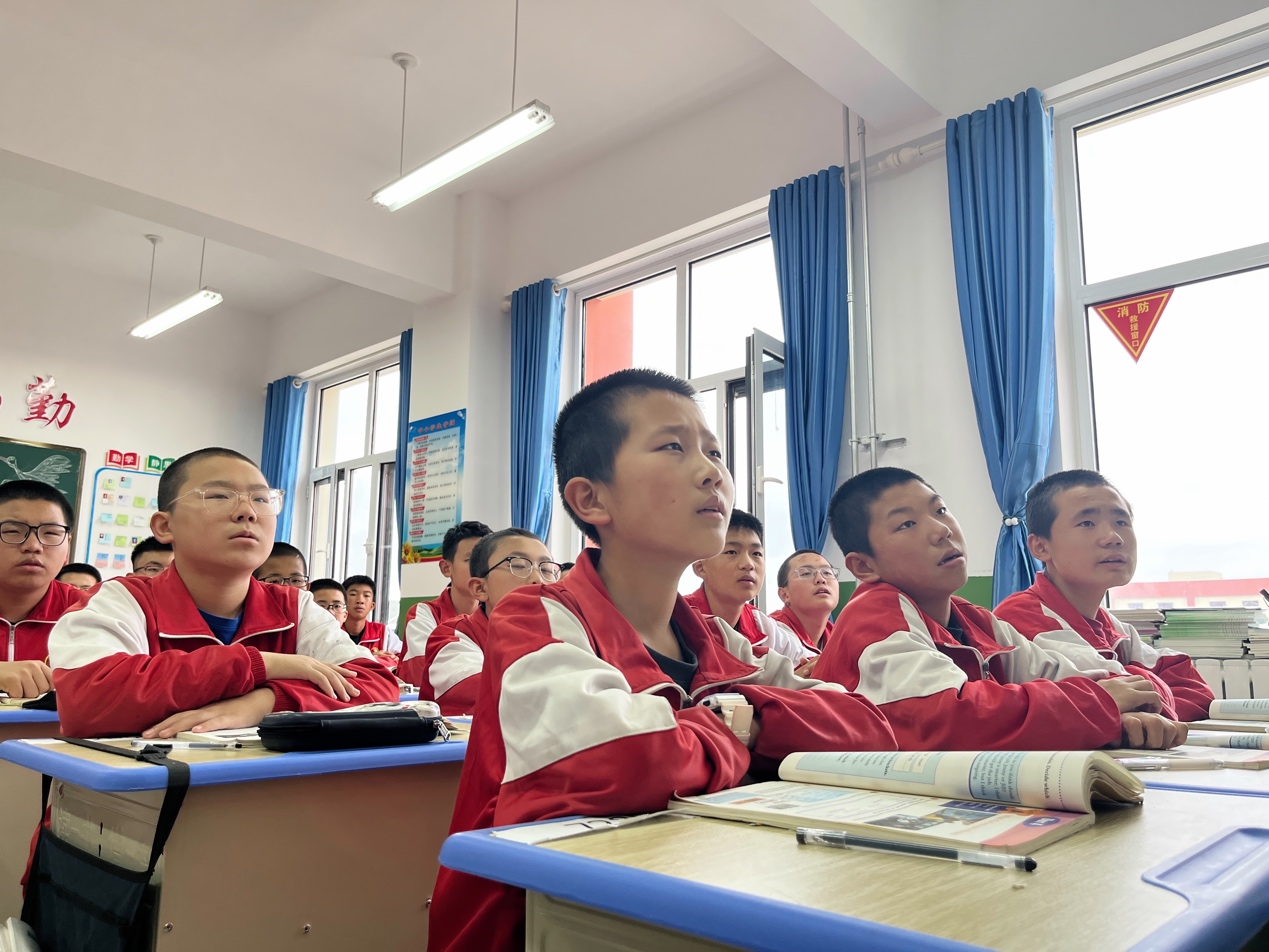An English class at a village school: China's rural education initiatives bring children hope
I went to Yuanhe Middle School in Xiji County, Ningxia Hui Autonomous Region, to participate in an English class with village children.
Xiji, located in Xihaigu, used to be one of China's poorest regions, and was designated as one of the “most unfit places for human settlement” by the World Food Programme in the 1970s. On Nov. 16, 2020, Xiji, the last poor county in Xihaigu, was removed from the poverty list, a historic achievement for the region and the whole nation.
Most kids at Yuanhe Middle School come from poor village homes and are "left behind" children - kids whose parents work in the cities to make a better living. Taking care of rural children is integral to China's efforts to reduce poverty. The school offers boarding services and free breakfast and lunch to the students, who can also video chat with their parents daily.
To better care for the village children, the school provides outdoor hiking, technology, art electives, and foreign language programs to help them understand the outside world.
I met many kids aged 13 to 14 who used English to greet the world. They all yearned to travel beyond their small town, repeatedly using "outside world" as a term to describe the wider globe.
Providing high-quality education to disadvantaged village children is critical to China's poverty-alleviation efforts. During my trip in Xihaigu, I also visited Ningxia Normal University, which is located in Xihaigu. Over 70% of its students specialize in disciplines related to education.

Students at Yuanhe Middle School take an English class. (Photo by Chi Zao)
In 2013, local and central governments launched public-funded programs to recruit students interested in becoming teachers in Ningxia's rural villages and districts. By 2023, 3,500 students were enrolled in the program, many of whom came from underprivileged village households in Xihaigu.
I had the opportunity to speak with Yang Weizong and Zhao Lei, two publicly-funded students from the once-poor Xihaigu region who are now majoring in English language. After finishing school, they plan to teach English in the Xihaigu area.
Yang told me that when he was a child, his school had English textbooks but no teachers to educate the students. He made up his mind to become an English teacher so that he could help more kids in his hometown learn about the wider world.
Zhao believes that language is the key to understanding a culture or a nation. He hopes that by teaching the kids in his hometown a second language, he can help them broaden their horizons and develop an objective perspective on the world. He envisions a future where these children can use their knowledge of other languages to dispel stereotypes about China and share Xihaigu's stories with the rest of the world.
Photos
Related Stories
Copyright © 2023 People's Daily Online. All Rights Reserved.









